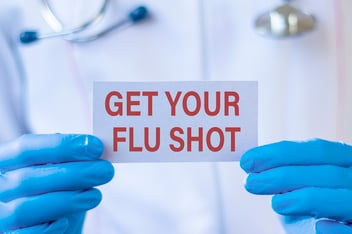The emergence of what is commonly referred to as the “coronavirus” has a lot of people understandably on edge. This is particularly true for individuals who have a preexisting health condition which could put them at higher risk of complications from this respiratory illness.
In fact, the Centers for Disease Control and Prevention (CDC) now urges anyone over the age of 60, as well as anyone with several chronic medical conditions (such as heart, lung, or kidney disease) to “stay home as much as possible.” This is because these groups seem to be at twice the risk of serious (as opposed to mild) forms of infection. Specifically, this means these people should avoid any activities with large crowds, such as airplane travel, movie theaters, family events, shopping malls, and religious services.
What is the Coronavirus?
Let’s start out with a bit of clarification about the coronavirus. The coronavirus actually refers to a family of respiratory illness-causing viruses. The virus in the news is actually a strain of coronavirus known as COVID-19. It’s in the same family of diseases that cause the common cold. Like the common cold, COVID-19 spreads between people, especially from infected respiratory droplets produced by coughing and sneezing.
Symptoms of COVID-19 can vary from mild to severe, and death is a possible outcome. The most common early symptoms (which include fever, cough, and shortness of breath) appear between 2 and 14 days after exposure. The Centers for Disease Control and Prevention (CDC) currently notes that the risk in the U.S. remains low for this viral infection.
Advice for Those with Chronic Health Conditions
Anyone can get COVID-19, however, the risks associated with this infection remain greatest in those with preexisting health conditions or who are in a high risk group. Individuals in any high risk group are recommended to be more careful about additional preventive measures.
High risk groups include:
- People older than age 65
- Those with chronic medical conditions (e.g., chronic cardiac, pulmonary, renal, metabolic, neurodevelopmental, liver, or hematologic diseases)
- Those with immunosuppressive conditions (e.g., HIV/AIDS, receiving chemotherapy or steroids, or malignancy).
Another group at higher than usual risk for coming down with COVID-19 are those working in health care, due to their potentially increased exposure to infected patients.
People with chronic health conditions – such as those with asthma, diabetes, or heart disease – should take extra precautions if COVID-19 symptoms start to develop. The concern is two-fold: first, that complications from the infection can worsen their health, such as bacterial pneumonia, ear infections, and sinus infections, and second that they can experience a worsening of the original health condition.
Protection Tips
There are steps you can take to lessen your chances of infection with COVID-19:
- Avoid people who are sick.
- Frequent hand-washing.
- Cover your mouth and nose with a tissue when you cough or sneeze (and make sure others do the same).
- Put your used tissue in a waste basket.
- If you don’t have a tissue, cough or sneeze into your upper sleeve, not your hands.
- Remember to wash your hands after coughing or sneezing:
- Wash with soap and water, or
- If soap and water are unavailable, use an alcohol-based hand sanitizer that contains at least 60% alcohol to clean hands
- Clean your hands often with an alcohol-based hand sanitizer that contains at least 60-95% alcohol, or wash your hands with soap and water for at least 20 seconds. Soap and water should be used preferentially if hands are visibly dirty.
- Clean frequently touched items such as phones, keyboards, and doorknobs to help remove germs.
Stay Safe, Stay Vigilant
For health care providers and patients who rely on BioPlus Specialty Pharmacy, you’ll be comforted to know that our specialty pharmacy has a robust business continuity plan, for a variety of emergencies, including a potential pandemic.
With the emergence of COVID-19, it is more important than ever to try to prevent infection. Refer to the CDC, FDA, and World Health Organization (including these Frequently Asked Questions) for the latest information about COVID-19.
Related Posts
Social Distancing: Time to Come Together By Staying Apart
Social distancing is one of the best tools – after hand washing, of course! – which can slow the...
Washing Machines: Drafted to the Frontlines
Whether you’re washing your scrubs or trying to simply keep your family’s clothes clean, you...
VIDEO - Washing Machines: Drafted to the Frontlines
Flu Cases Up This Season: Everyone Should Get a Shot
Flu cases are expected to increase this year, especially among vulnerable populations. For anyone...





